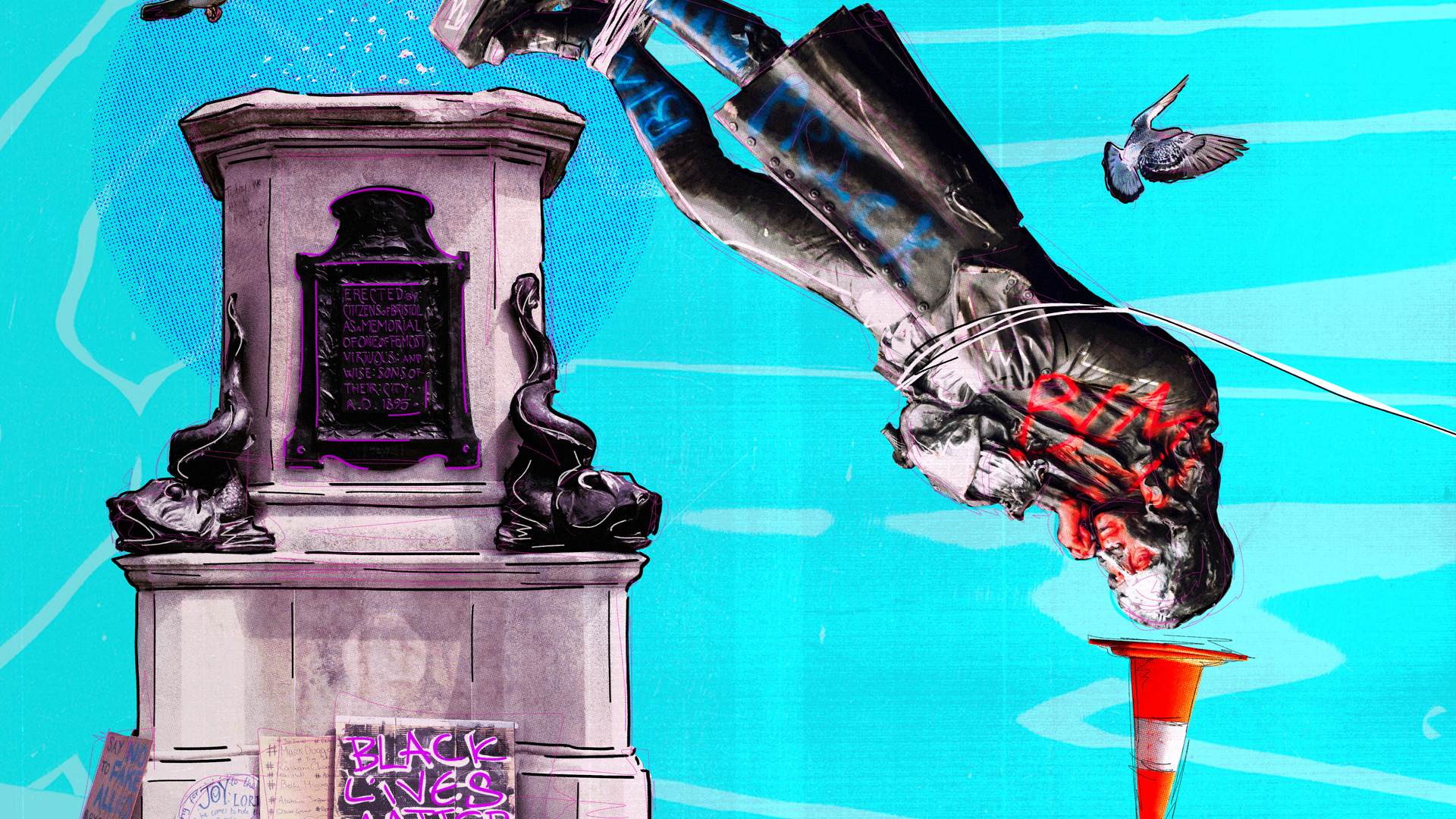“We’ve seen steep rises in the beliefs that the UK is divided, that ‘culture wars’ are real and that things were better in the past.”
The study measures the perception that we are embroiled in culture war disputes, rather than the degree to which we are actively engaged in them. However, various other data points from the research suggest to decisive splits in how Brits of different ages and political affiliations think about the UK.
Half (50%) the public today say the culture in the UK is changing too fast, compared with 35% five years ago, and half (48%) also say they would like their country to be the way it used to be – up from 28% in 2020.
Unsurprisingly, this kind of nostalgia is particularly acute amongst Reform UK supporters; a staggering 88% say they’d like the country to be the way it used to be, compared with just 20% of Green supporters.
Three-quarters of Reform supporters also say there is a ‘great deal’ of tension between immigrants and people born in the UK, twice the level of Labour, Liberal Democrat and Green supporters.
“This points to the real challenge – that we now have incredibly different perspectives between different groups in the country, across party lines and by age group,” Duffy continued.
Advertising helps fund Big Issue’s mission to end poverty
“We lived through an incredibly divisive period around the EU referendum and its aftermath, when there were there was stark opposition and real tension between those who identified with the ‘Leave’ and ‘Remain’ sides of the argument. This has died down… but, rather than leading to a sense of greater national connection, the division has morphed into party political and other splits, with attitudes to immigration and the speed of culture change more generally at the heart of them.”
What exactly is a culture war?
What exactly is a culture war? That itself is a topic of contention, but they’re essentially emotive and symbolic conflicts clustered around issues of identity like race, gender and sexuality.
How we think about history is an obvious example. Was Churchill a hero, or was he a racist? Should we take down statues of philanthropists linked to the slave trade?
Transgender rights have increasingly become the site of a bitter culture war, with thousands of column inches dedicated to the question: ‘What is a woman?’ According to the study released today (7 November), the proportion of the public who say transgender rights have gone too far has more than doubled since 2020, from 17% to 39%
Meanwhile, the cost of living crisis grinds relentlessly on, and we careen towards climate catastrophe.
The study released today reveals a fragmented, disrupted society, says Gideon Skinner, senior director of UK politics at Ipsos – a dynamic with obvious political consequences.
Advertising helps fund Big Issue’s mission to end poverty
”Perceptions of political and cultural disharmony are growing, reflecting a society grappling with nostalgia, the pace of change, and growing tensions over immigration, and with polarised views over what terms like ‘woke’ signify,” he said.
Nearly half (48%) the public now consider “woke” an insult, rather than a compliment – up from 42% two years ago and 24% back in 2020.
“These views are most notable among Reform UK supporters,” Skinner continued, “with the party becoming a home for those concerned about the pace of change.”
Reform might be surging in the polls, but it might be a lonely place to be. Two in five (38%) people say it’s hard to be friends with Reform UK voters, with one five (20%) strongly agreeing with this view. This is double the proportion who say it’s hard to be friends with Conservative voters (20%) and three times the share who feel this way about Labour voters (12%), even if still only a minority.
Among all major parties’ supporters, those who back the Green Party are most likely to say friendships with Reform and Conservative voters are hard. For example, 52% of Green supporters feel this way about Conservative voters – double the share of Labour (26%) and Lib Dem (25%) supporters who say the same.
Do you have a story to tell or opinions to share about this? Get in touch and tell us more.
Advertising helps fund Big Issue’s mission to end poverty
Change a vendor’s life this Christmas.
Buy from your local Big Issue vendor every week – or support online with a vendor support kit or a subscription – and help people work their way out of poverty with dignity.





